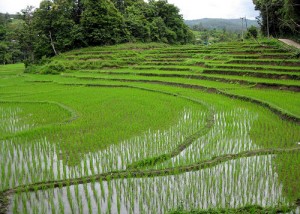
May 1st – May 4th I’ll be splitting my time between my duties at the unviersity and the third annual international Water for Food conference.
You can register, see the program, and find out more about the conference on the official website.
This conference was first held in 2009, the proceedings, presentations, and photos are available to all:
Future of Water for Food Conference, University of Nebraska-Lincoln, May 3-5 2009
This conference led to the creation of the Robert B. Daugherty Water for Food Institute at the University of Nebraska. This institute received a $50 million founding gift commitment from the Robert B. Daugherty Charitable Foundation and is part of the $1.2 billion Campaign for Nebraska.
2010 Water for Food Conference, Lincoln, NE May 2-5
This conference and institute are unique in that they attempt to address all the aspects of the complex questions of how do we responsibly use and preserve our fresh water resources while providing adequate food for our growing population? Water usage practices, infrastructure, manufacturing, legal, social, agricultural, and health issues all must be addressed to solve this complex problem.
Agriculture consumes 70 percent of all water usage. Without reform future generations will be unable to grow sufficient food due to lack of water, this is because if aquifers are sufficiently depleted they will be unable to recover and people in the effected area will have to import all water from outside areas or move. What causes this lack of water? In some areas it is the increase in crops needed to feed a growing national and global population, in others like California it is caused by the building of more homes and businesses than the local water supply can safely support and renew itself, and also due to the growth of ornamental high water use grasses and plants in areas that are naturally a desert. All of these things contribute to a largely human created condition of drought.
In order to combat these issues the institute will pursue fundamental and applied research, policy, and educating the public. They will do this by developing more efficient methods of agriculture through practical changes to existing practices and the use of technology to more efficiently use the water which is needed to grow agricultural crops. They will also research and form guidelines and tools that can help water managers, consumers, and the public make informed and effective decisions when it comes to water management.
The institute will also develop international partnerships and fellows programs to increase the diversity of discipline and approaches to the water for food question. Additionally, the institute will fund graduate fellowship and provide undergraduate scholarships to encourage highly qualified students to pursue studies at the Water for Food Institute.
The Institute also seeks to develop a global peer reviewed journal specific to the Water for Food problem and establish a global clearing house for Water for Food information.
Because many of the problems caused by the dilemma of producing enough Water for Food are more serious in developing countries the institute will seek to develop partnerships with these developing countries. Many of these developing countries already have active aid organizations in them that may be good partners for collaboration in reaching out to these developing nations.
For those who are interested in issues in water management you might be interested in this piece written by my Uncle who practiced water law for most of his career in the state of Kansas.
Comparing and Contrasting the Roles of the Division of Water Resources and the Groundwater Management Districts in Groundwater Management and Regulation
Leland E. Rolfs, 2007, Kansas Journal of Law and Public Policy 15(3)
http://www.law.ku.edu/publications/journal/pdf/v15n3/rolfs.pdf
Rice fields near Chiang Mai, Thailand photo by echiner1, CC by Attribution-Share Alike 2.0 Generic

